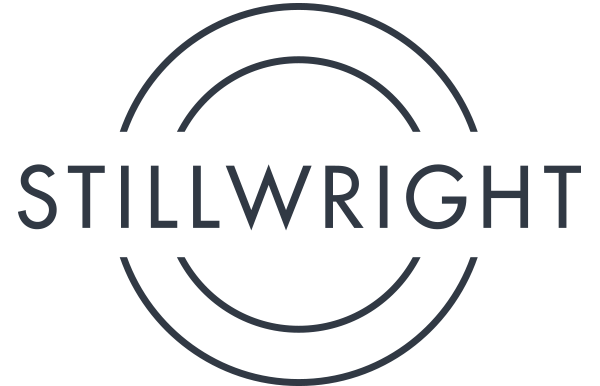
Stillwright:
A brief history and description
The silent retreats are organized by playwrights for playwrights and other writers. They began in 2008 with three days of silence and writing at a site in the Catskills. The retreats were an outgrowth of the land-based “pataphysics” workshops at the Flea Theater, and for the first ten years were organized by Anne Washburn, Madeleine George, and Gary Winter. Now playwrights Liz Duffy Adams and Anthony Weigh join with Gary to organize these not-for-profit retreats.
Erik Ehn, playwright and former head of playwriting/theater at Cal Arts and Brown University, guides eight to twelve playwrights with prompts, writing exercises, physical exercises, and talk about silent contemplation. The retreats are usually held for for seven to ten days at sites which have included a donated ranch in the Texas hill country, an arts retreat in upstate New York, and a Zen center in the Bay Area. The 2024 retreats will take place at a Benedictine monastery in Kentucky and an artists residency in the Santa Cruz Mountains.
When the pandemic began we created a series of virtual retreats (Rhythm of Silence) for writers to do from wherever they are. Beyond pandemic safety, these proved to have real virtues of accessibility, equity, and inclusion, and work as a path toward resetting your creative process in the context of your daily life. We hope to offer more of these when possible.
In the future we also hope to find additional sites in other parts of the country, and towards that end we are seeking out additional sources of funding. We actively welcome and encourage diversity among the playwrights that participate.
The goal of the retreat is a way for playwrights to be immersive in contemplative silence for an extended period of time. It is important to this process that playwrights come without a notion of what they are going to write, and to create new work while on the retreat. While in silence participants engage in supportive compassion with each other. In other words, we create silence for and with one another.
Introduction to Stillwright
By Erik Ehn
Contemplation, creation, compassionate social action – a little ladder of three steps:
Art makes and holds space for the imaginative rehearsal of changes, deep and elated.
Imagining is doing. Imaginative rehearsal is change – all change is rehearsal; the deployment of the imagination is the glory of change.
Art identifies and sustains communities in the hospitality of its space.
Hospitality is the free sharing of risk; mercy is the live, wild loosening of resource and need to common pool, as inequity yields to a collective, creative moment.
Justice is the fruit of the freedom to create.
Justice is sane communion in the hospitality of creative, imaginative space, supported by the courage (blood-center) of the arts.
Silence can model justice, through silence’s spaciousness, vulnerability, and clarity.
A silent retreat for artists threads contemplation, creation, and compassionate action towards the change of heart justice wants.
Contemplative practices support creative outcomes. Creativity, supported this way, moves to compassion, which impels social action.
Silence, as a feature of contemplation, develops a sense of availability and interdependence. Silence co-produced (social silence) promotes co-produced passion. Compassion as a principle can, through exercise, be the motive of an ongoing art process. A compassionate art process is vulnerably available and interdependent, generating works that invite the co-making of meanings, patterning ethical exercise.
Our retreats are built around inter-traditional contemplative practices (Zen, Ignatian) that abet personal and structural de-cluttering. Silence saturates the working environments with permissions. The artists’ subjects and materials are allowed to be themselves. We discover images, images discover formal relationships, and systems of relationship determine theme and meaning. We are not the boss of the writing. We’re in balance with it. Poised.
The retreats are fun, difficult, and get to the core of what we want to do, apart from explanation or judgment.
*
We were a few years in when it hit. I was walking down an access road in south Texas on a stormy afternoon. The air boiled my running sweat and the full sky was off balance, making something it couldn’t finish, folding salt-flour clouds. We had been silent for about five days, quiet enough to hear the shape of your brain, tired enough to quit looping narratives, letting the heart go do what the heart does in its own language. I felt without naming a number without counting – the strange group of us here, side by side in this rare project, laying ourselves out under time, blown through by nature, earnest in our passion to be useful to writing, responsive to what the roll of creation was doing in and through us. This was a detonation of gratitude. I appreciated all-at-once the gift of a community dedicated, for an intense while, to falling apart together, and to assembling the fallen-ness of all of us into a silent sacrifice to the elsewhere derided or ignored cause of making-do with making and doing in helpless hope. How lucky to be together, for art, in a group pledged to vulnerability.
The more, the better, for the rest of my life.
—Erik Ehn
About Erik Ehn
Work includes The Saint Plays, No Time Like the Present, Wolf at the Door, Tailings, Beginner, Vireo (w/composer Lisa Bielawa), and Clover (dir, Glory Kadigan). The Soulographie project, a series of 17 plays on U.S. history from the point of view of its genocides, was produced at La MaMa, NY, November 2012. Soulographie scripts include Maria Kizito, Heavenly Shades of Night are Falling, Yermedea, and Drunk Still Drinking. Founder and Co-Artistic Director, Tenderloin Opera Company. Graduate, New Dramatists. Recently received a Masters of Theological Studies from the Jesuit School of Theology, Berkeley, California. Currently a visiting professor at the University of New Mexico.


